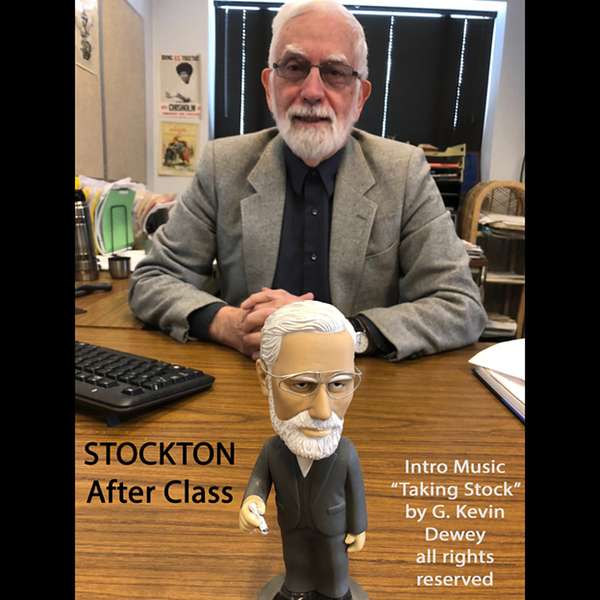
StocktonAfterClass
Ron Stockton was a professor of political science at the University of Michigan-Dearborn for 48 years. His specialty was non-western politics and political change. He taught classes on the Israeli-Palestinian Conflict, Religion and Politics, the Politics of Revolution, Non-Western politics, and American politics. He also taught in the Honors Program, focusing upon foundational readings from the 18th and 19th centuries. He has an interest in religion and politics and in the role of religio-ethnic groups in the political system. The listener can anticipate talks on Arab-Americans, Jews, African-Americans, the Scots-Irish, and Evangelicals. He has lectured and written on American politics, public opinion, and voting behavior and on the role of religious organizations and ideologies in the political system. There will be occasional discussions of books and films that address serious issues. And he has lectured and published and even taught a class on gravestones, especially those of different ethnic and religious groups such as Muslims, African-Americans, Jews, and Native Americans. The goal of the podcast series is to provide analysis and commentary by a political scientist to explain and make accessible political, historical, and cultural developments in the United States and around the world, and to give the listener analytical tools to understand those developments. It is also to entertain the listener.
StocktonAfterClass
John Mearsheimer on the Gaza War. Israel: Loser; America: Loser; Iran:Winner. Ouch!
•
Ronald Stockton
John Mearsheimer of the University of Chicago is one of the very top strategic analysts in this country. He is of the Realist School. He thinks we should look at the reality of power, and that each country should look after its own interests.
Earlier in this month, he delivered a talk in Australia on the Gaza War. He came up with data I had never heard and insights I had never considered. This is a faithful summary of his key points. It will change the way you think about this conflict.
And the talk itself is easily accessible on the internet. Just search for his name, then find the Australian talk. you will be glad you did.